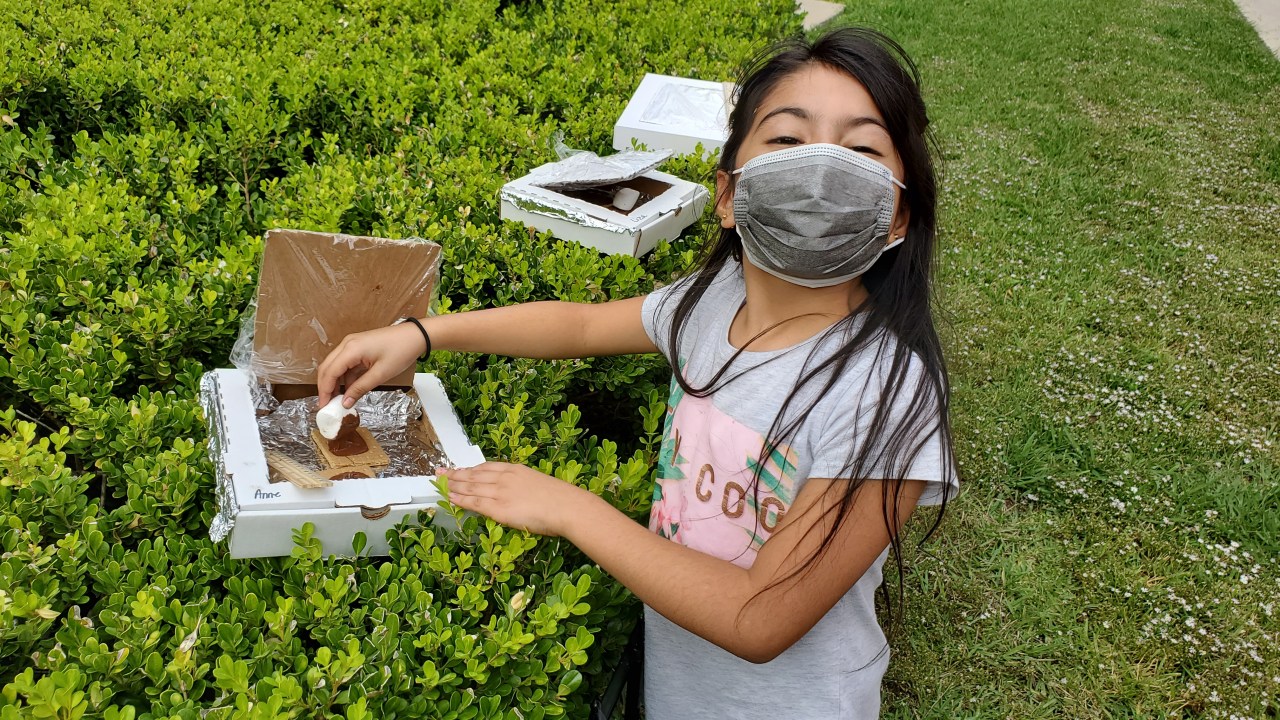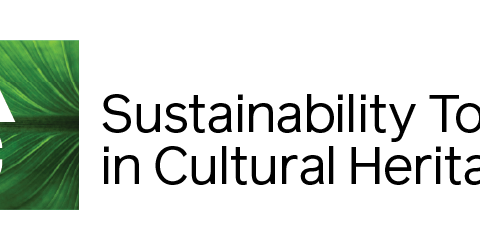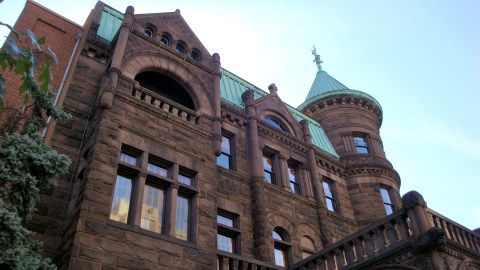
Over the past two years, the pandemic has prompted museums to experiment with new products and services to meet the needs of their communities. Some of these experiments have turned out to be, in effect, pilot projects for financially sustainable, mission-related initiatives. This week Amber Shive, Senior Director of Education, tells us how the success of the “Little Scholars” program the Fort Worth Museum of Science and History, originally created to support students coping with remote learning, has inspired a long-term expansion of their educational role in the community in partnership with, and funding from, the local school district.
–Elizabeth Merritt, VP Strategic Foresight and Founding Director, Center for the Future of Museums
For over seventy-two years, the Fort Worth Museum of Science and History’s Museum School has introduced children to the wonders of the world around them. Founded in 1949, the program was first called the “Frisky and Blossom Club:” Frisky was an opossum and Blossom was a skunk. The “Frisky and Blossom club,” introduced school age children to over thirty extracurricular classes in subjects like elementary photography, leather craft, dog training, model planes and boats, and it was taught by a faculty of 14 volunteers. The program stemmed from a group of educators’ vision to provide enrichment for their students. Today, Museum School continues to be a national model for informal science education, in the form of a tuition-based preschool as well as a grant-funded science and history enrichment program for public school students. It serves over 4,000 students, ages 2 to 8, per year, and it is continuing to grow.
Over the past 12 months the museum expanded its educational services to meet the needs of students learning virtually during the pandemic. That experiment was so successful it has prompted us to seek a partnership with our local school district to create a free, in-district charter school that will dramatically increase the number of high-quality options for Fort Worth Independent School District families.
The pandemic forced the Fort Worth Museum of Science and History (FWMSH) to close our doors to the public, first from March 14, 2020, through August 12, 2020, and then again from December 28, 2020 through June 24, 2021. (A large percentage of our staff was let go due to these closures.) Local schools closed to prevent the spread of Covid-19 well into the fall semester. During this time, our education programs took on new roles to support students. Museum School went virtual with Zoom lessons led by our teaching teams, later returning to in-person learning with smaller class sizes, and our teachers created learning supply bags to deliver to students.
Our most significant innovation was creating a Little Scholars Program to utilize Museum exhibit space and serve students learning virtually during the pandemic. When we launched Little Scholars on October 5th, 2020, it was geared towards first through fifth grade students. Shortly after starting, we expanded the program to assist students in grades first through eight in over nine neighboring school districts. Museum staff—some of whom were brought back after being let go due to the pandemic—facilitated and guided students in their virtual assignments as well as provided science and history-based enrichment explorations and activities.
The program was housed in our main exhibit, utilizing some of the enormous space that was not needed for permanent or traveling installations. This provided a unique environment for learning, including observation of the Museum’s large teaching collection of scientific specimens and historic artifacts, interaction with the live animals, visits to Museum exhibits and the Noble Planetarium, engagements with the Museum’s scientific experts as well as field trips to the other local museums.
The COVID-19 pandemic has revealed many of the inequities facing school children across the country, from inadequate internet access to housing instability to food insecurity. There are concerns about learning loss for kids across multiple grade levels, and those losses vary across different socio-economic groups and neighborhoods. Our programs address these inequities in two ways. The first is through the timing of the educational support we provide. The data we have collected from our early education programs show that children who receive early intervention through safe and inviting education programs develop improved social skills, critical thinking skills and better performance in school. Secondly, we reduce the negative impacts of remote learning. Students who were at risk prior to the pandemic had even fewer available resources during the pandemic, including devices and adequate internet connections to access remote learning, high-quality remote instruction, and home support, thus compounding existing gaps in student performance. The resources and support provided through the Little Scholars Program successfully overcame many learning barriers facing students, pointing to the potential for the museum to help level the educational playing field for children in Fort Worth.
Building on this success, we have decided to create a new STEAM Academy that will continue to provide equitable learning spaces for our community’s most vulnerable population. The STEAM Academy will serve students in kindergarten through fifth grade, Monday through Friday, on-site at the Museum. We are applying our institutional knowledge in the informal arena into a formal education model that will focus on a comprehensive, STEAM-centered learning model that will emphasize science, humanities, math, arts, and engineering. Our STEAM Academy will provide formal primary education that addresses the need for early interventions in learning, using developmentally appropriate, experiential, engaging, project-based learning to foster curiosity, imagination, and ingenuity. The Academy will encourage students to explore, imagine, and inquire using our science specimens, historical artifacts, breakthrough technology, and engaging exhibits.
In addition to providing innovative learning opportunities, the STEAM Academy will also serve as an important learning laboratory for university students studying to be tomorrow’s teachers, allowing a broader group of educators to gain a better understanding of STEAM centered experiential learning as well as curriculum/pedagogy development.
We are in the process of working with our local school district to make the STEAM Academy an in-district charter school that will launch in fall 2023. This arrangement will make the district eligible to receive state funding set aside for innovation (established by the Texas Partnerships Senate Bill 1882 ) and enable students to attend the STEAM Academy for free. The museum will receive funds from the district to be the school operator, and the district will pay educator salaries. This partnership will also give us access to school resources such as transportation, meal services, etc. The school will be a sustainable community partner through dedicated school funding that will provide families with an equitable learning environment for all students. Through the STEAM Academy the museum will nurture the next generation of museum goers, members, and donors, and possibly the next generation of museum staff.
About the Fort Worth Museum of Science and History
The Museum was established in 1941, is accredited by the American Alliance of Museums, and is an Affiliate of the Smithsonian Institution. Anchored by its rich collections, the Museum is dedicated to lifelong learning. It engages guests through creative, vibrant programs and exhibits interpreting science and the history of Texas and the Southwest. For more information, visit www.fortworthmuseum.org.
About Museum School
The Fort Worth Museum of Science and History’s Museum School was the first museum preschool in Texas and one of the first in the nation to recognize that 3, 4, and 5-year-olds have the capacity to learn about science and natural history. As such, it was one of the first museum preschools accredited by the National Association for the Education of Young Children.
Museum School serves about 4,000 children a year, from preschool through 2nd grade. Additionally, our Education Outreach programs reach over 28,000 children a year. Since 1949, Museum School has served more than 200,000 children. For more information, visit www.fwmuseum.org/learn/museum-school/.
About the author
Amber Shive, Senior Director of Education: I oversee the museum’s education programs, experiential learning programs, and community events. I fell in love with FWMSH when I was a Museum School student. I have cherished getting to see my two children fall in love with learning through Museum School and in the museum. My first role at the Museum was as a member of the floor staff; I felt so lucky to work at this remarkable Fort Worth treasure and that feeling has not gone away. I later joined the education department as a Museum School teacher and curriculum writer. My favorite thing about our museum is the ability it has to spark curiosity and wonder. FWMSH’s programs invite guests and families to imagine and dream. I am proud of the work we have done to support and engage our community during the pandemic. I am excited about the transition of the Little Scholars Program into a STEAM Academy.







